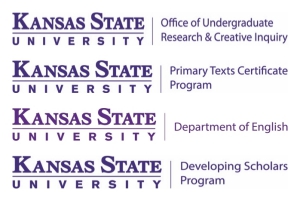Title
Copper Binding of Heterocyclic Compounds Is Vital For Novel Drugs Against Gram-Positive Bacteria
Student Major/Year in School
Biology, third year
Faculty Mentor Information
Stefan Bossmann
Abstract
Azzy Minjarez1, Man Zhang1, Anjana Delpe-Acharige1, Kayla Eschliman1, Olaf Kutsch2, Stefan H. Bossmann1
1: Department of Chemistry, Kansas State University
2: Department of Medicine, University of Alabama at Birmingham
Copper Binding of Heterocyclic Compounds Is Vital For Novel Drugs Against Resistant Gram-positive Bacteria
Multidrug resistant bacteria are capable of developing resistance to a majority of available antibiotics making them an imminent threat. Thus, synthesizing novel drug candidates is vital. The average adult contains 50-80 mg of copper within the body, which assist the immune system. Efflux pumps of bacterial cells are the primary defense mechanism, which recognize and remove copper. Our research focuses on synthesizing heterocyclic compounds that allow copper to bind and go unnoticed by efflux pumps to fight against the bacteria. To synthesize these heterocyclic compounds, we have used substituted pyrazoles and aryl substituted phenyl isothiocyanate compounds. Column chromatography and recrystallization are then completed to obtain purified products. Finally, the products are structurally verified by using Nuclear magnetic resonance spectroscopy, 1H-NMR and 13C-NMR. In 2019, I have synthesized and purified 17 novel compounds, which led to 5 novel designer drugs capable of copper binding.
Creative Commons License

This work is licensed under a Creative Commons Attribution-Noncommercial 4.0 License
Recommended Citation
Minjarez-Almeida, Azriel (2019). "Copper Binding of Heterocyclic Compounds Is Vital For Novel Drugs Against Gram-Positive Bacteria," Kansas State University Undergraduate Research Conference. https://newprairiepress.org/ksuugradresearch/2019/posters/36
Copper Binding of Heterocyclic Compounds Is Vital For Novel Drugs Against Gram-Positive Bacteria
Azzy Minjarez1, Man Zhang1, Anjana Delpe-Acharige1, Kayla Eschliman1, Olaf Kutsch2, Stefan H. Bossmann1
1: Department of Chemistry, Kansas State University
2: Department of Medicine, University of Alabama at Birmingham
Copper Binding of Heterocyclic Compounds Is Vital For Novel Drugs Against Resistant Gram-positive Bacteria
Multidrug resistant bacteria are capable of developing resistance to a majority of available antibiotics making them an imminent threat. Thus, synthesizing novel drug candidates is vital. The average adult contains 50-80 mg of copper within the body, which assist the immune system. Efflux pumps of bacterial cells are the primary defense mechanism, which recognize and remove copper. Our research focuses on synthesizing heterocyclic compounds that allow copper to bind and go unnoticed by efflux pumps to fight against the bacteria. To synthesize these heterocyclic compounds, we have used substituted pyrazoles and aryl substituted phenyl isothiocyanate compounds. Column chromatography and recrystallization are then completed to obtain purified products. Finally, the products are structurally verified by using Nuclear magnetic resonance spectroscopy, 1H-NMR and 13C-NMR. In 2019, I have synthesized and purified 17 novel compounds, which led to 5 novel designer drugs capable of copper binding.


